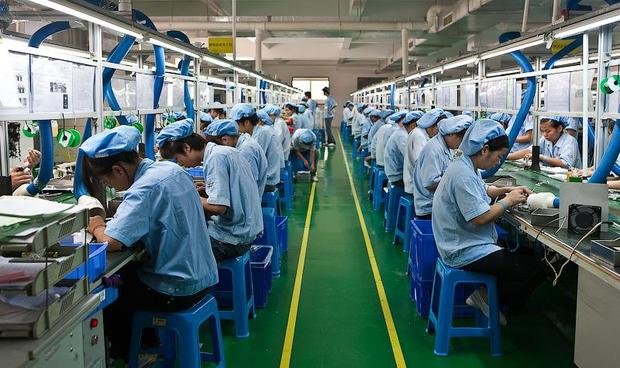''There will be a crisis in the Eurozone, it’s absolutely obvious''
Georg von Wallwitz about the future of the dollar, trade wars and the retirement age in Russia
German financier, author of Odysseus and the Weasels. A Cheerful Introduction to the Financial Markets and Mr Smith and Paradise. The Invention of Wealth Georg von Wallwitz has been in Kazan at the invitation of Smena and Ad Marginem publishing house. He gave a lecture in the open air at Black Lake and had an interview with Realnoe Vremya afterwards. The financier predicts an inevitable crisis in the Eurozone and China, talks about the future of the dollar and the main obstacle to the development of the economy in Russia.
I'd hardly imagine the gist of the economy has changed somehow
How would you describe the major changes in the global economy in the last 20 years, 50 years? Has there been any? Or has nothing changed?
In my opinion, we can point out several tendencies of this kind, we can call at least a couple. Firstly, it's a tendency for globalisation we'd seen before what happened 10 years ago (Editor's Note: the world financial crisis in 2008-2009). Then all markets in the world switched to protectionism. The second tendency is that there is an impression in all parts of the world that we are living or at least entering the era of stagnation. It's been happening the western world since the 1970s, and growth paces have been reducing more and more in the other parts of the world at least in the last 10 years.
It's hard to define the reason for it. The population probably ages rapidly and becomes less dynamic in itself. On the other hand, innovations don't develop as fast as they used to – this also can be a reason. However, it hasn't been possible yet to find out the true prerequisites for the era of stagnation we're living in. And the third tendency we can note is the automatisation of not only technological processes but also services. And we'll have been seeing this process for the next 20 years.

''A state's obligation is to provide its citizens with equal chances of participating in social and economic life. And what we call an unemployment benefit or the universal basic income doesn't matter in the end.'' Photo: nanonewsnet.ru
Has anything appeared or is anything appearing that's able to change the foundation of economy?
In my opinion, there aren't such occurrences. I'd say I'd hardly imagine the gist of the economy has changed somehow.
What about the Internet? Doesn't it have that potential?
I wouldn't say so. Even if the appearance of the Internet changes our behaviour in many ways (ways of trading have changed, ways of obtaining information have changed), this doesn't influence the gist of the economy, which is still based on supply and demand.
Many countries have had tests with the universal basic income in the last years. Do you see the future lies with this concept? Or will these tests end leaving nothing behind?
I don't think there will be any significant changes because a similar system already exists in the western, European world. It's a basic social insurance system that guarantees a person's life can't be lower than a certain level. Of course, the concept of the universal basic income sounds better, and this system probably increases people's wealth level. But it isn't very different from the basic insurance system, in fact.
A state's obligation is to provide its citizens with equal chances of participating in social and economic life. And what we call an unemployment benefit or the universal basic income doesn't matter in the end.
Our century is doomed to be an Asian century
Do you feel the world is becoming freer or, on the contrary, more regulated? Do you believe there can be an economy that's as free as possible, in general?
I need to say there haven't been any absolutely free markets, in general, without any regulation since the early 19 th century. In addition, nobody wants to exist in such conditions now. The economy understood that there are some things the market can't produce itself. For instance, it can't produce a good environment, good ecology. This is why all economists understand that there must be some regulatory mechanisms that guarantee the appearance of what that's not guaranteed by the market itself. We all want to live in the world that's comfortable and it feels good in.
However, it seems to me that general regulatory mechanisms have changed for the better in the last 40-50 years because they've become less politicised. For instance, central banks have been more independent (a positive moment that can be noted in the Russian economy is that a strong woman chairs the central bank, thanks to what there is a belief that the central bank really has an independent position).

''A positive moment that can be noted in the Russia economy is that a strong woman chairs the central bank, thanks to what there is a belief that the central bank really has an independent position.'' Photo: Maksim Platonov
Developing countries don't account for a big part of GDP in the world at the moment. But, as a rule, they grow faster. It means that as time goes by their share can be comparable with the share of currently developed countries. Do you believe this will happen?
We've been observing for a long time a tendency that the focus is shifting from the western to the eastern, Asian world; forces are redistributed, and I think our current century is doomed to be an Asian century any way.
A crisis always comes as a bolt from the blue
We've been predicted the next world crisis time and again. Moreover, sometimes these forecasts are made by very influential people, authoritative organisations (George Soros, the World Bank). Do you think the world learnt the lessons of the Great Recession that guarantee us protection from new global shocks?
We can say we've learnt some lessons at a technological level. For instance, the banking system has been safer. In general, nothing has changed in the US economy, in its structure – it's the problem that can have quite a lasting influence on economic systems. However, it's hard to say when these long-term consequences will come – in two years, in five years, in 10, 30 years. There isn't any meter to define when economic structures will fall.
It can't be certainly said when the next crisis in the Eurozone will be. But it's absolutely obvious it will be. The situation with the euro has been quite favourable in the last 2-3 years. But nobody has taken advantage of this situation. This is why there will be a crisis any way, we just don't know when. Neither do we know when there will be a crisis in the Chinese economy. But, in general, everyone understands China's debt is too big. It's impossible to forecast to the day when the whole system will fall under this debt.
In this case, where can a threat come from? Is it a too big debt level, a bubble in a certain market or anything else?
It's a very good question, and a huge number of people asks it. But, unfortunately, this question is bound to remain unanswered, as a crisis arises when it's impossible to define where a danger comes from. If we could presuppose the euro falls in a year, we'd start undertaking something now. But as a crisis always comes as a bolt from the blue, I can't answer this question too, I don't know where it will come from.
The dollar has already exhausted its potential
The biggest world economy has declared a trade war on other countries. As we could make sure, this undermines trust and causes confusion everywhere. Can it all influence the balance of forces in the world?
It goes without saying that the position of the USA will be affected on the world scale. Other countries see that the USA is ready to use its economic power as a tool to put pressure and will do its best to get rid of this pressure, avoid risks of being exposed to it.
For instance, a Chinese mobile phone producer used chips according to a US technology. The USA says to it: ''As you trade with North Korea, we forbid you from using our technologies any more.'' And as this company couldn't produce phones any more, a collapse awaited it. But the logical conclusion isn't that China will stop making mobile phones but that the Chinese will simply switch to their own technologies. This will undermine the foundation of the US economy in the long term, of course.

''The logical conclusion isn't that China will stop making mobile phones but that the Chinese will simply switch to their own technologies. This will undermine the foundation of the US economy in the long term, of course.'' Photo: mobiroid.ru
Abrupt actions of the USA have already brought to sales in many developing markets. Is it temporary? Or will the markets be under pressure until there is a general feeling of instability?
I think it's a temporary state of affairs, as all developing economies are very dependent in the world market. For instance, Russia will never use its all minerals itself, it needs access to a market to sell them.
Of course, the closure of access to the world market has a negative effect. But this negative effect is softened by general positive tendencies of developing markets. In the next 10 years, I'd prefer investing my money in such countries' shares than dollar shares. The dollar has already exhausted its potential.
It's laws of economics, and no government can beat them
Vladimir Putin gave a task to make Russia the fifth world economy in six years. Measuring by the parity of purchasing power, it turns out we need to go one line up (Germany is on it now). But everyone who knows the business a bit doubts it's possible – higher growth paces are needed for this. Can Russia reach at least world paces in the next years?
I think Russia has the potential to become a big economic power. It has a big domestic market, the market has many players, many resources and many smart people. But structural changes are needed. Russia's legal system needs to guarantee the right of possession – it will be impossible to attract any investors without it. The problem of slow growth can't be solved without an inflow of investments, it's can't be solved, for instance, by growth in population and thus, growth in production capability.

''As far as I understand the Russian reform, the retirement age has been extended so much that many people won't simply see it. From an economic point of view, it's a wonderful solution to the problem. But from a social, I have some doubts.'' Photo: Dmitry Reznov
Does it mean it's not a matter of trade, industry but rather trust between economic agents?
Yes, exactly. Nobody would think such a factor as trust that can be called more psychological can have an economic influence. Nevertheless, it works.
The retirement age is increased in Russia now. And it's very painful: the population sees only disadvantages in it, with no advantage. Do you think the guaranteed pension system will last forever?
I can say there is nothing eternal in economics. The question is if the system in which the young must pay for old people will be conserved. Such a model works only in the countries with growth in population. In the countries where the population is reducing, governments have to resort to two measures: either to raise taxes on the young part of the population or reduce costs on the old one, otherwise, it's impossible.
But politicians try to push this problem from themselves, to make the next generation solve it. For example, they accumulate debts or disrupt the stability of the currency, issue more money (so the pension is paid, but pensioners can't buy anything on it). And it's a vicious circle. It's laws of economics, and no government can beat them.
As far as I understand the Russian reform, the retirement age has been extended so much that many people won't simply see it. From an economic point of view, it's a wonderful solution to the problem. But, from a social perspective, I have some doubts. In the West, authorities try to assure the population they need to invest money in shares, make investments to get income from them. But, unfortunately, only a few people do so. This is why Europe hasn't found a solution to this problem too.